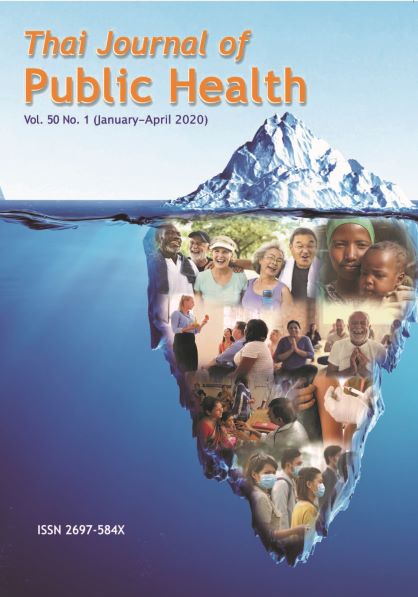Effect of a Social-Network-Based Self-Care Program on Health Literacy and Outcomes among Personnel at Risk of Metabolic Syndrome
Keywords:
metabolic syndrome, health literacy, social support , social network, Self-care program, Metabolic syndrome, Health literacy, Social networkAbstract
This quasi-experimental study aimed to evaluate health literacy and health outcomes after application of a self-care program delivered via a social network, among personnel who were aged 20-59 years and at risk of metabolic syndrome. The experimental group (n=30) received 6 sessions of training and coaching in self-care and health care information via LINE groups for a 6-month period. The comparison group (n=30) were instructed to follow their usual lifestyle habits. Data were collected using a questionnaire at pretest and posttest, and blood samples were drawn. Data were presented using descriptive statistics. Scores in health literacy, knowledge, judgement, behavior, and blood chemistry were compared at pretest and posttest in the experimental group versus the comparison group, using the independent t-test. A paired t-test was used to analyze the change in scores and blood chemistry from pretest to posttest within each group. At posttest, mean scores of judgement in the experimental group were better than in the comparison group (p<0.05); therefore, the mean difference in health literacy score was higher in the experimental group. Fasting blood glucose and cholesterol concentrations were significantly lower than at pretest in the experimental group (p<0.05). In conclusion, this study improved health literacy, and blood cholesterol and glucose concentrations, in personnel who were at risk of metabolic syndrome. This suggests that a self-care program, delivered via a social network, can improve health literacy and can effectively improve clinical parameters; hence, it should be applied to prevent non-communicable disease in the community.
Downloads
Published
Issue
Section
License
Creative Commons License CC-BY-ND


